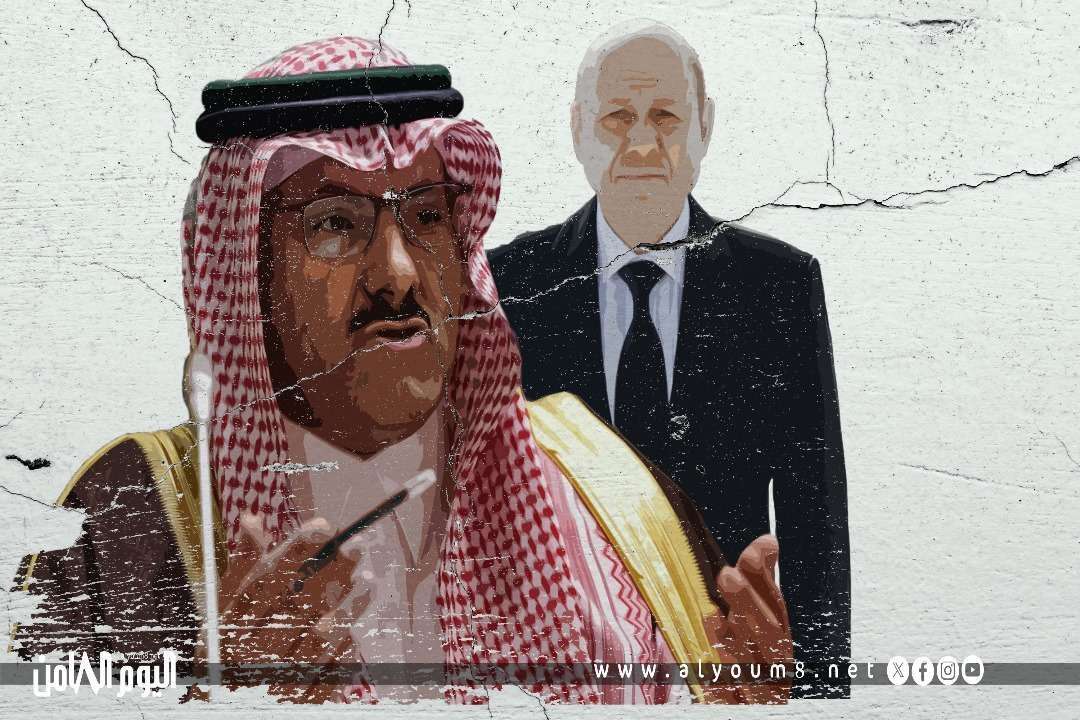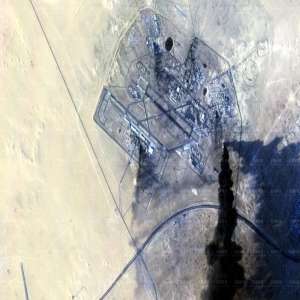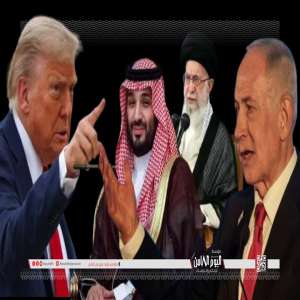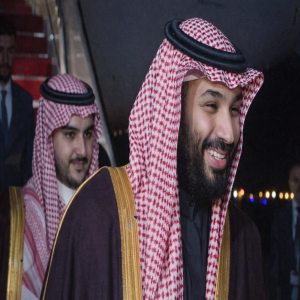.Rashad Al-Alimi" brings tension back to Mukalla"
Documented: Saudi Arabia's ambassador to Yemen affirmed his country's commitment to supporting the "Hadramawt Chapter" project
Saudi efforts to strengthen its influence in Hadramawt province remain an "old and renewed strategy," as Riyadh seeks to strengthen its influence in Hadramawt, a province rich in oil and gas, and sees it as strategically important, as it can help it achieve its future economic goals, including the construction of an artificial canal linking the kingdom to the Arabian Sea.

Saudi Ambassador to Yemen Mohammed Al Jaber and in the back the Chairman of the Yemeni Interim Presidential Leadership Council Rashad Al-Alimi – vehicle
A member of the so-called Hadramawt National Council (a regional entity) said that Saudi Arabia's ambassador to Yemen, Mohammed Al Jaber, affirmed his country's commitment to supporting the Hadramawt separation project, in a trend that southern politicians said strengthens the ambitions of the major neighbor in the eastern southern governorates (Al-Mahra and Hadramawt).
Majid al-Kathiri, a member of the "regional entity" that was established with Saudi funding, said in a leaked recording that Al Jaber advised leaders from the Muslim Brotherhood and others from the General People's Congress Party to work under the authority of the Saudi-made Presidential Leadership Council to achieve the project of "separating Hadramawt" from the rest of the southern governorates, in a step that confirms the existence of a Saudi desire to achieve what it describes as the project of the century, which is the establishment of an industrial canal linking the wealthy Kingdom to the Arabian Sea.
On May 20, Saudi Arabia summoned leaders of the Muslim Brotherhood and the General People's Congress Party (GPC) in response to the Southern Transitional Council's convening of the National Assembly in the city of Mukalla, which boosted the council's popularity in the southern provinces.
Riyadh has previously announced its refusal to remove northern Yemeni military forces from the valley and desert of Hadramawt, claiming that this represents a strategic depth for it in preventing any future threats it may be exposed to from Iran and its proxies, although most of these forces belong to governorates that owe allegiance to the Iranian project in Yemen, namely Sana'a, Amran and Dhamar, the governor of Hadramawt, Mabkhout bin Madi, says that the forces of the first military region are not friendly and that they must withdraw towards areas under the control of the Houthis.
Al-Kathiri said that the Saudi ambassador to Yemen, met with them in the capital, Riyadh, and informed them that achieving their "goals" (the separation of Hadramawt), will only be achieved through the legitimate Yemeni authority, demanding that the governor of Hadramawt, "Mabkhout bin Madi", head the delegation, but the governor withdrew after stipulating that any solutions must be within the framework of the south, "the former People's Democratic Republic of Yemen", and the last president of the south (J J D A), Haider Abu Bakr Al-Attas, that the Hadramawt Council (regional) Saudi Arabia's moves in Hadramawt have received extensive news coverage from the Yemeni Brotherhood channels, which confirmed that the project serves the agenda of the organization, which was taken out by the Southern Transitional Council from four southern governorates, including Aden (the capital) and Shabwa (oil).
Al-Kathiri stressed that "the Saudi ambassador was clear with the delegation from the third day of his arrival in Saudi Arabia (May 23, 2023), but he stipulated that the work should initially be legal "under the authority of legitimacy."
After a month of Saudi talks with members of the Council, months in the capital, Riyadh, the "regional political entity", in the presence of the Chairman of the Interim Presidential Leadership Council, Rashad Al-Alimi, and the Saudi Ambassador to Yemen, Mohammed Al Jaber, has shown the entity's positions are clearly opposed to the directions of the Southern Transitional Council, aimed at removing the forces of the first military region from the valley and desert of Hadramawt, and replacing them with elite forces, but the Saudi entity, renewed its adherence to the northern Yemeni forces, and considered that the trends are separation from "Aden", but political sources Southern, considered the regional entity as a Brotherhood attempt to obstruct efforts to restore the former southern state.
But beyond these goals, Saudi efforts to consolidate its influence in Hadramawt remain an "old and renewed strategy," as Riyadh seeks to strengthen its influence in Hadramawt, a province rich in oil and gas, which it sees as strategically important, as it could help it achieve its future economic goals, including the construction of an artificial canal linking the kingdom to the Arabian Sea.
Saudi Arabia is trying to develop another formula for its ambitions, as it sees its project in Hadramawt as "confronting Iranian influence in the region", despite the fact that Riyadh and Tehran are living in a post-confidence-building phase, following a Chinese-sponsored agreement last March, where Saudi moves with the United States of America dropped the anti-Iran project and its proxies, as Riyadh demanded that Washington not launch any US strike against the Houthis, at sea and Bab al-Mandab.
Saudi Arabia seeks to cut off part of the south "Shabwa, Hadramawt and Al-Mahra", overlooking the condition of the Arabian Sea, to secure these roads in order to protect its economic interests, especially since Saudi politicians have expressed a desire, including Suleiman Al-Aqili - that Saudi Arabia seeks to annex the governorates of Shabwa, Hadramawt and Al-Mahra, claiming that it is the price of Saudi intervention in Yemen.
The data on the ground and in the political corridors confirm that Saudi Arabia will continue its efforts to strengthen its influence in Hadramawt, which means that it may enter into a clash with the southerners who have shown sensitivity to Riyadh's handling of the southern crisis file, which has its roots in the Yemeni war in the summer of 1994, where Riyadh stood by the Sana'a regime, in exchange for the redrawing of the Yemeni-Saudi border.
On a related level, an attempt by a military force affiliated with the Yemeni Presidential Command Council to control a security headquarters in the vicinity of the presidential palace in the city of Mukalla, the center of Hadramawt governorate, east of Aden, raised the state of tension in the province, where Riyadh seeks to achieve military influence through Rashad Al-Alimi, who had previously been pushed to visit Mukalla in an attempt to legitimize the Hadramawt Regional Council.
Al-Arab newspaper said that this conflict, which has so far taken on a political character, especially in the formation of the Hadramawt National Council, indicates the difficulty of arranging the conditions of the province and its compatibility with the requirements of the agreement engineered by Saudi Arabia and the Sultanate of Oman and their successor Iran.
The conflict generally revolves between northern Yemeni forces backed by Saudi Arabia that are working to keep Hadramawt on the map of the (united) Republic of Yemen, and southern ones that see the province as an integral part of the independent southern state that wants to revive it within the ongoing peace arrangements.
On this basis, the Southern Transitional Council, which led the idea of restoring the state of the south, considered sending a force affiliated with the Presidential Protection Brigade to the vicinity of the presidential palace in Mukalla as part of the northern Yemenis' attempt to control the city's institutions and centers of sovereignty.
The military police brigade confronted the presidential protection force, which Al-Arab newspaper said was preparing for the return of Chairman of the Presidential Command Council Rashad al-Alimi to Mukalla accompanied by leaders of the recently established Hadramawt National Council in the Saudi capital Riyadh.
"After the so-called presidential protection was expelled from Aden, it is now being returned to Hadramawt," political activist Abdullah Ali Jaber said.
"Is this an indication that Rashad al-Alimi plans to make Mukalla his headquarters and wants to transfer the conflict to the safe city, which has not witnessed any incident after its liberation from al-Qaeda," he asked in a post on the X platform, adding, "We are waiting for the reaction of the Southern Transitional Council, especially since this area is affiliated with it."
The STC's reaction to the events of the presidential palace in Mukalla was not delayed, as its local executive body in Hadramawt held a meeting in which it condemned what it called "attempts to impose military hegemony on Mukalla," stressing that "the people of the province are struggling to liberate their valley and will not allow the return of the occupation forces to Mukalla under any justification."
During the meeting, Saeed Ahmed al-Mohammadi, head of the commission, accused "parties in the legitimacy of fabricating problems and exchanging services with the Houthis," condemning "the attack by Yemeni forces on the military police brigade tasked with protecting the presidential palace in Mukalla in a new attempt to control the palace."
The vast majority of Hadramawt residents "stand by their military elite and will resist agendas to turn their province into an alternative homeland for fugitives", he said.



